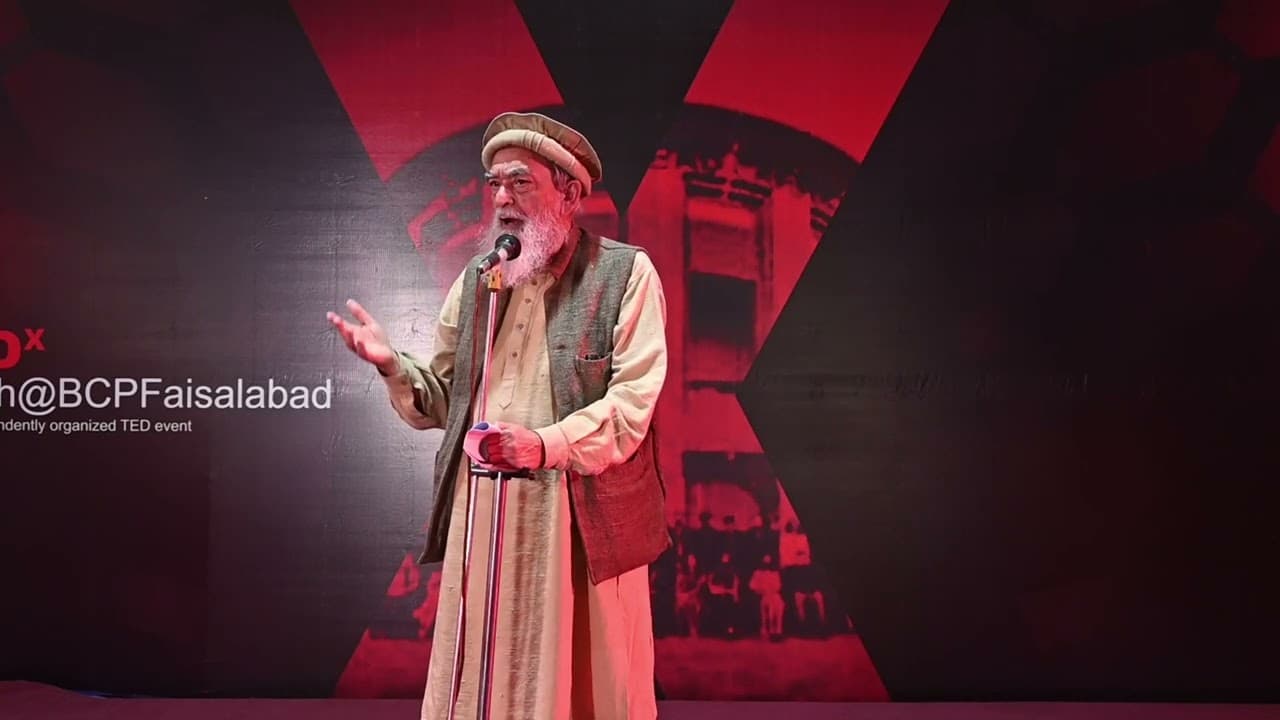From Modernity to Tradition | Kamil Khan Mumtaz | TEDxYouth@BCPFaisalabad
01 Jun 2024 (over 1 year ago)

Education and Career
- The speaker was unsure about their career path after high school, torn between science and literature.
- Their teachers suggested architecture as a field that combined both interests.
- They studied architecture in London from 1957 to 1963.
- After graduating, they worked in an architect's office in London but felt restless and wanted to contribute to nation-building.
- They taught at a university in Ghana and later joined the architecture department at the University of Engineering and Technology in Lahore, Pakistan.
Realization and Shift in Perspective
- After teaching for 10-11 years, the speaker realized that people perceived their work as a style rather than a philosophy or cultural perspective.
- They had a profound realization that they and their peers who had studied abroad had been ignorant of their own culture and heritage.
- They decided to educate themselves about their own culture and wrote their first book, "Aura and the Aura of Architecture," which focused on Iranian architecture and its deep connection to the land.
- Reading a book about the traditional worldview changed their perspective on the universe.
- They realized that the modern worldview, which they had previously considered the only truth, was flawed, while traditional worldviews are based on reality and have a solid foundation.
Traditional Worldview and Conservation Efforts
- The speaker's goal was to understand the traditional worldview, which is based on metaphysics, physicalism, and scientism.
- They formed an organization called Anjuman-e-Viran to document historical buildings and their conditions.
- Around 1990, they realized the importance of preserving not only cultural heritage but also the natural environment.
- They established the Lahore Conservation Society to advocate for the conservation of both cultural and natural heritage.
- Their activism included street protests, court cases, and other forms of advocacy.
Vision for Lahore and Sustainable Planning
- The speaker and their group were invited by the National Building Authority (NBA) to discuss the concept of sustainability and develop a vision for the city of Lahore.
- The vision for Lahore should focus on the well-being and happiness of its citizens, not just economic growth.
- The plan should be created through consultation with a diverse group of stakeholders and should promote organic farming, artisanal manufacturing, and other sustainable practices.
- The plan should be written in Punjabi, the local language of Lahore, and focus on sustainability as a core principle.
- The speaker proposes a decentralized plan called "Lahore ka Master Planning" that focuses on creating 49 satellite towns around Lahore to prevent urban sprawl and preserve agricultural land.
Call for a Fundamental Shift
- The speaker emphasizes the need for a fundamental shift in thinking to prioritize the well-being of humanity and the planet over individual interests.
- They believe that the current approach to city planning is unsustainable and is leading the world towards destruction.
- The fight against those who are destroying our lives and the planet is not over, and we must continue to fight for a better future.